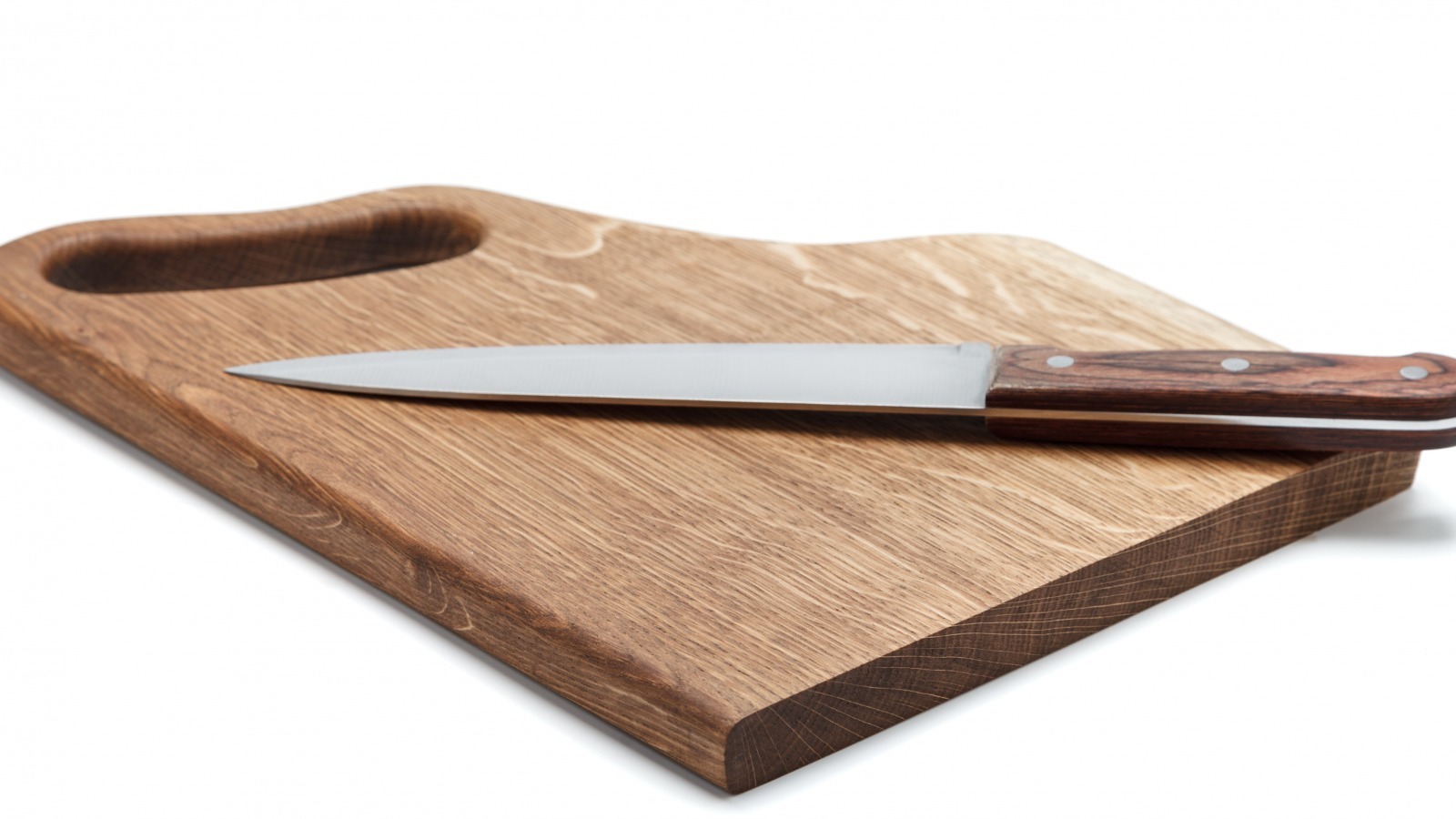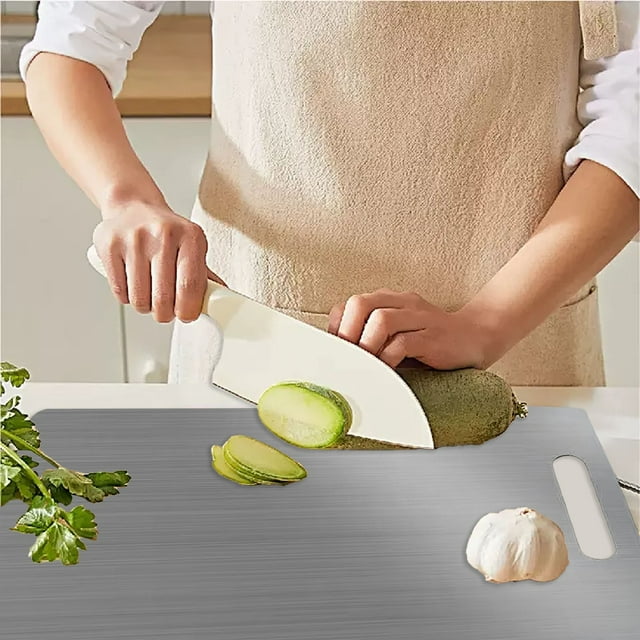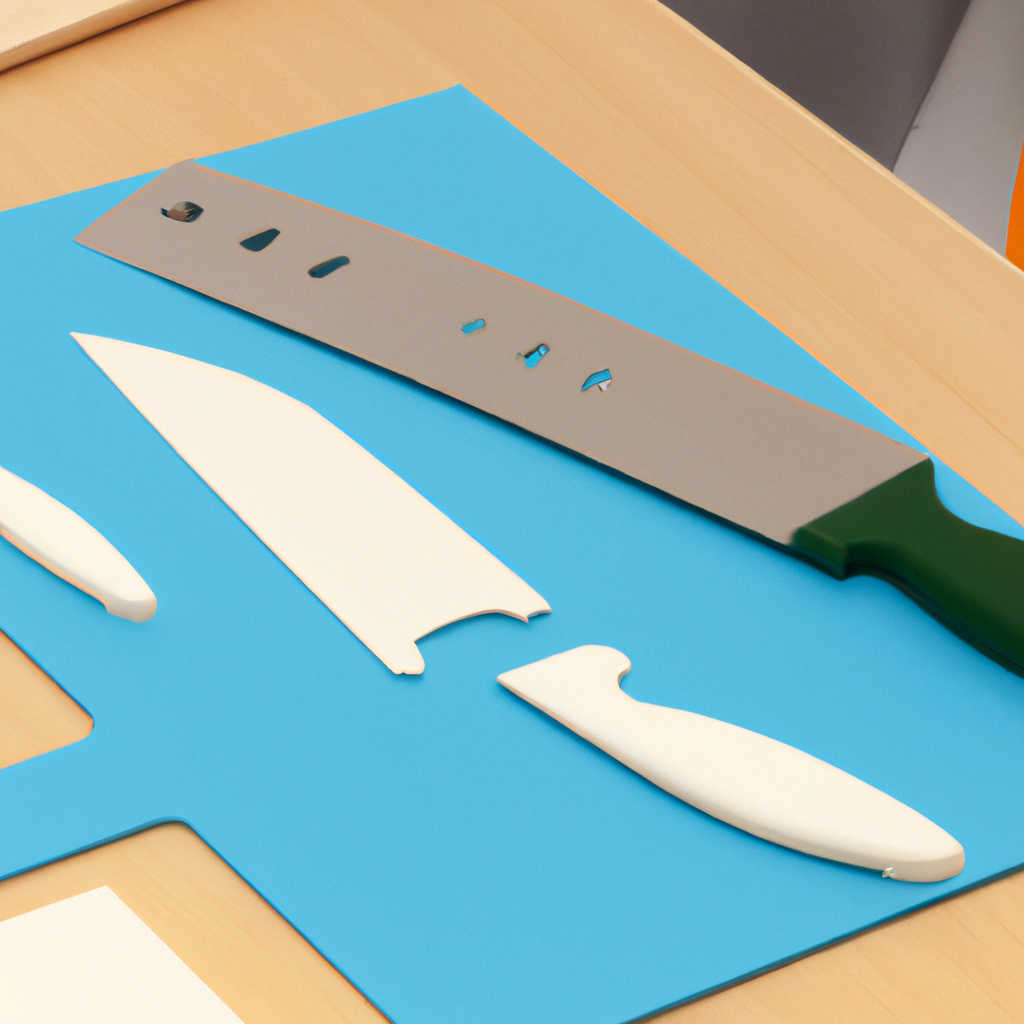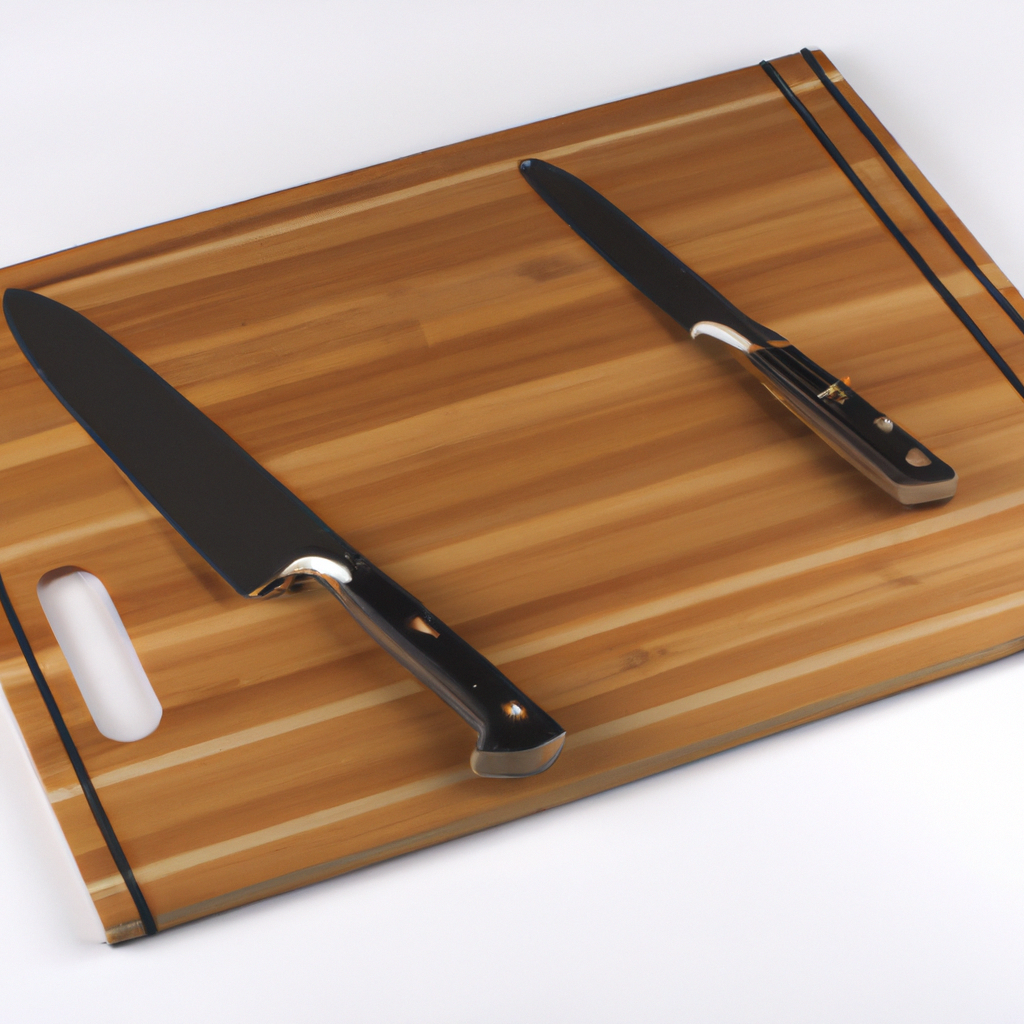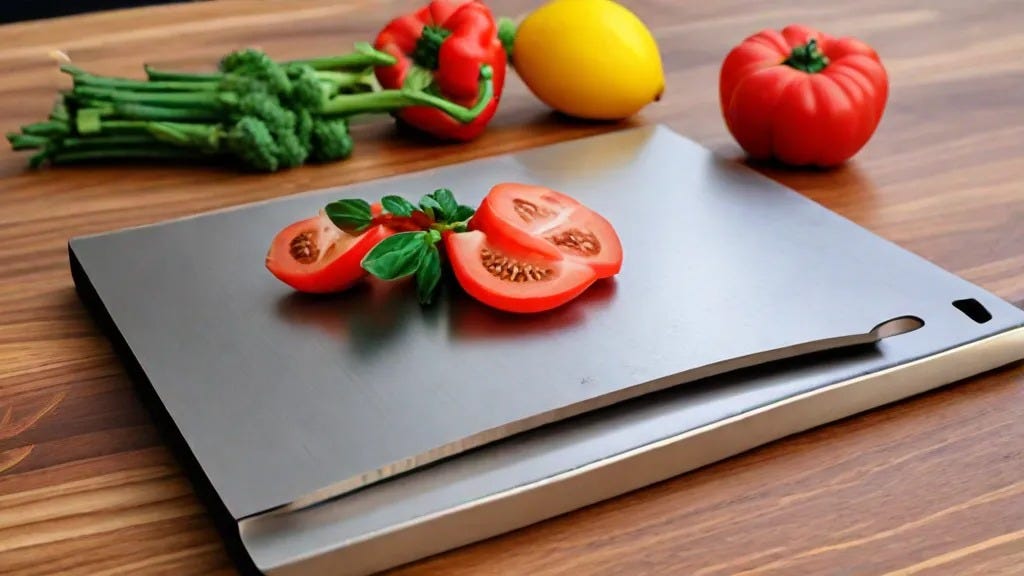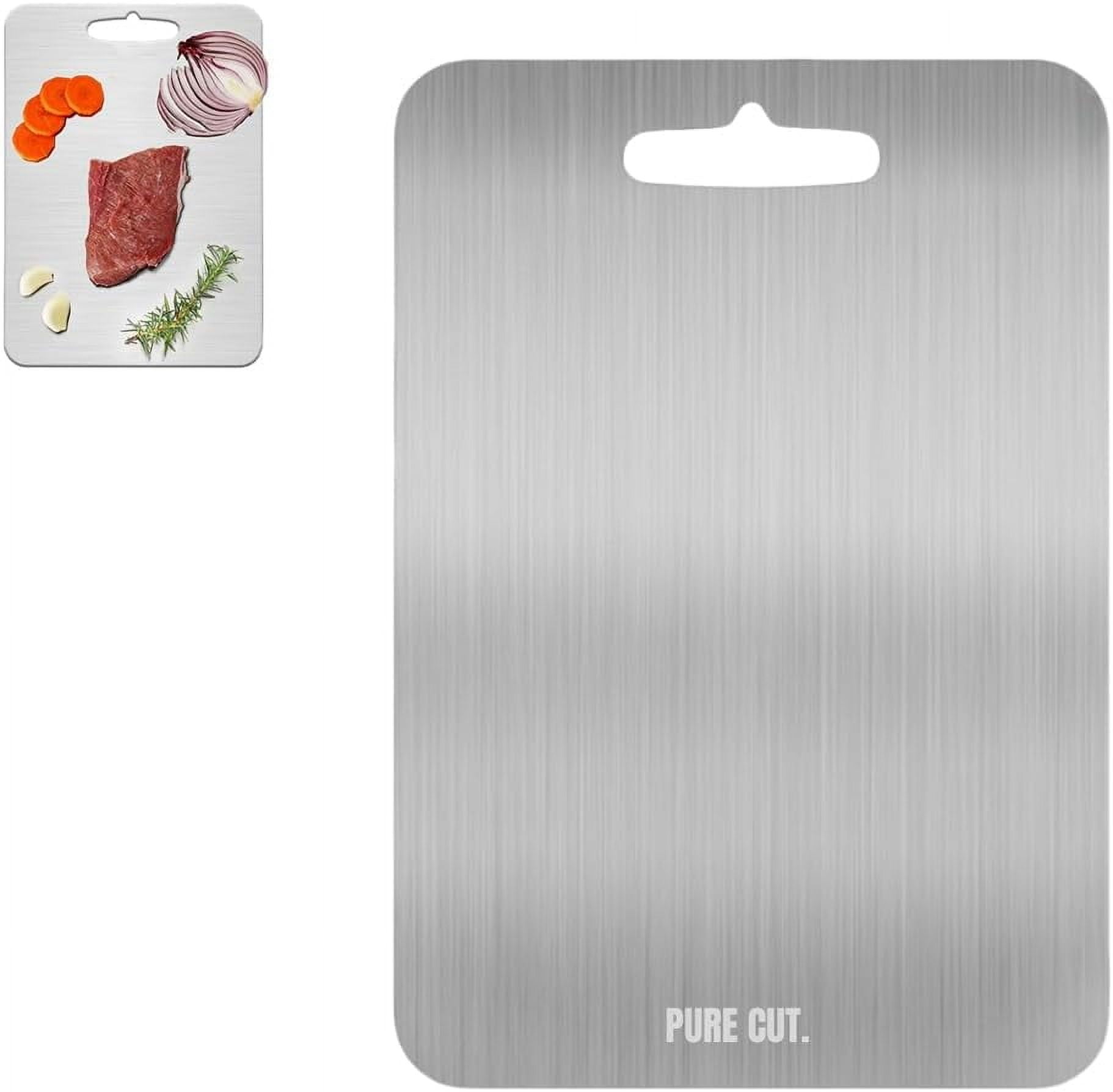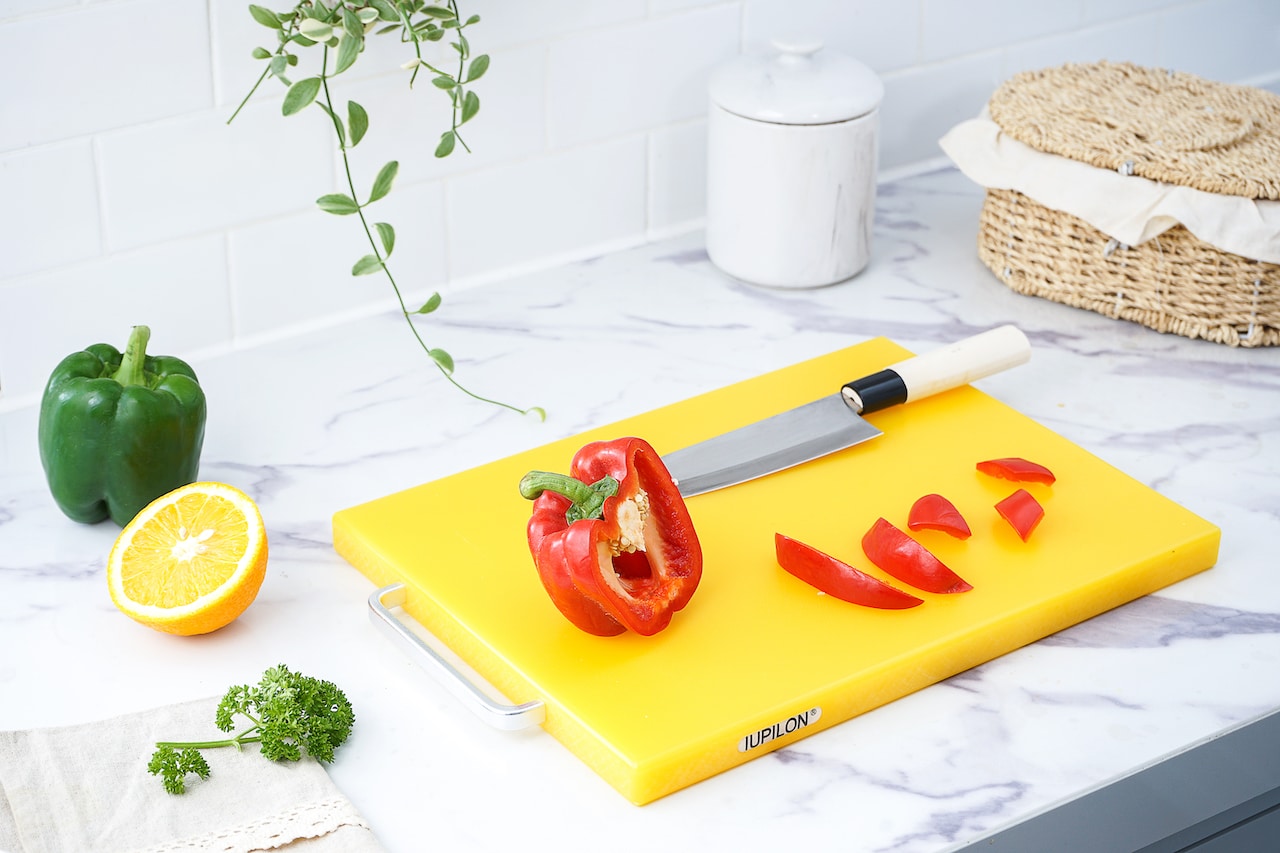Do Titanium Cutting Boards Dull Your Knives

The sleek aesthetic of titanium cutting boards has made them a popular choice in modern kitchens. But a nagging question lingers: Do these boards, prized for their durability and hygiene, actually dull your knives?
This is a question that's relevant to both professional chefs and home cooks alike. It impacts kitchen efficiency, the longevity of expensive knife sets, and ultimately, the enjoyment of cooking.
At the heart of the matter is understanding the relative hardness of titanium versus the steel used in knives. We need to examine how these materials interact during the cutting process.
The Science of Sharpness
Knife sharpness depends on a very fine, acute edge. This edge is formed by grinding and honing the steel to a precise angle.
Dulling occurs when this delicate edge is deformed or chipped away through contact with a harder surface.
The Mohs hardness scale measures a material's resistance to scratching. Diamond, the hardest known natural material, scores a 10. Titanium typically ranges from 5 to 6.5, depending on the alloy. Knife steel, on the other hand, typically ranges from 5.5 to 6.5, but this can vary significantly depending on the type of steel and its heat treatment.
Titanium vs. Steel: A Microscopic Battle
The crucial point is the relative hardness. While some titanium alloys might be *slightly* softer than some hardened steels used in knives, others are comparable.
Therefore, it's not a simple case of all titanium boards universally dulling all knives. The specific titanium alloy and the specific steel of the knife blade are key.
Contact with any hard surface, including glass, ceramic, or even some wood cutting boards, will eventually dull a knife. The degree of dulling and the speed at which it occurs depend on the materials involved and the cutting technique used.
Expert Opinions and Anecdotal Evidence
Chef Jean-Pierre Dubois, a culinary instructor with 20 years of experience, shares his observations. "I've used both titanium and traditional wooden boards extensively," he says. "While I haven't noticed drastically faster dulling with titanium, I do find the 'feel' of cutting different. It's a harder impact."
Online forums and product reviews are filled with conflicting reports. Some users swear their knives stay sharper longer with titanium, while others report noticeable dulling.
This inconsistency likely stems from the variability in materials and usage habits.
The Role of Cutting Technique
Even the best knife and cutting board combination can suffer from poor technique. Using excessive force, sawing motions, or twisting the blade can all accelerate dulling, regardless of the cutting board material.
Proper cutting technique involves using a gentle rocking motion and letting the sharpness of the knife do the work.
Maintaining a clean cutting surface is also crucial. Debris like salt or grit can act as abrasives, accelerating wear on the knife's edge.
Hygiene and Other Considerations
Titanium cutting boards are often marketed for their hygienic properties. They are non-porous and resistant to bacteria growth, making them easier to clean and sanitize than wooden boards.
This is a significant advantage, particularly in commercial kitchens or for individuals concerned about food safety.
The durability of titanium is another selling point. They are resistant to scratches, stains, and warping, ensuring a long lifespan.
Mitigating the Risk of Dulling
If you choose to use a titanium cutting board, there are steps you can take to minimize the risk of dulling your knives.
Regular honing is essential. Honing realigns the microscopic teeth on the knife's edge, extending the time between sharpenings.
Professional sharpening is also recommended periodically. This restores the knife's edge to its original sharpness.
Conclusion: A Matter of Balance
The question of whether titanium cutting boards dull knives is complex. There's no simple yes or no answer.
While some titanium alloys may be comparable in hardness to knife steel, the combination of alloy, knife steel, and cutting technique determines the rate of dulling.
Ultimately, the decision of whether to use a titanium cutting board depends on individual priorities. Consider the trade-offs between hygiene, durability, and the potential impact on knife sharpness, and then make an informed choice.


